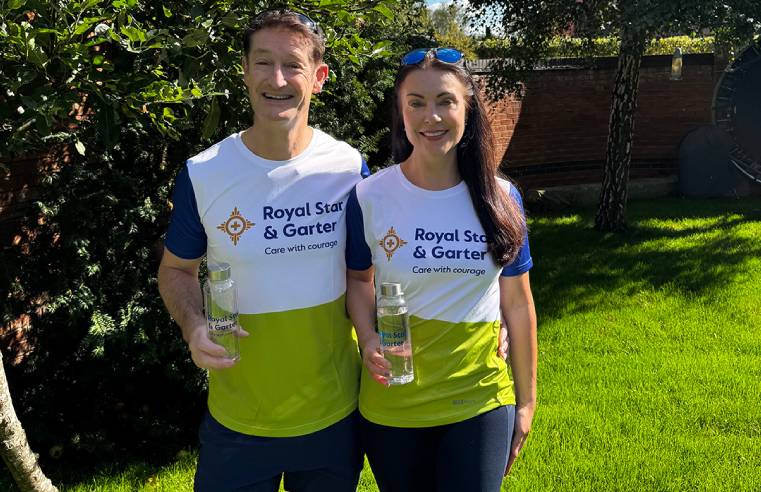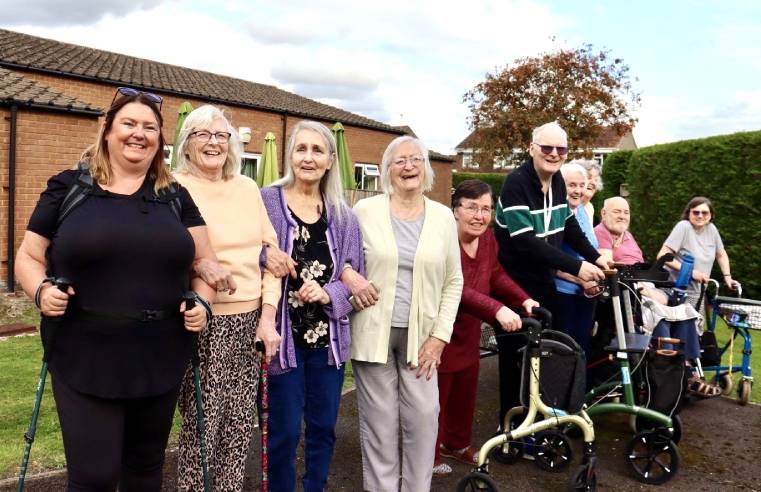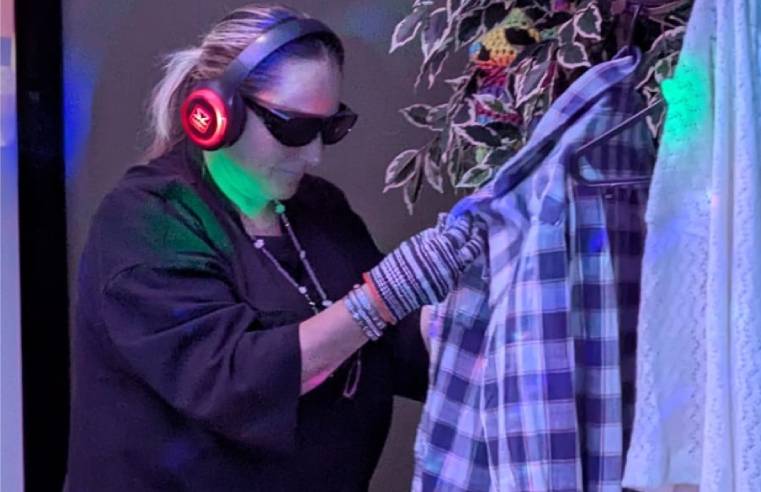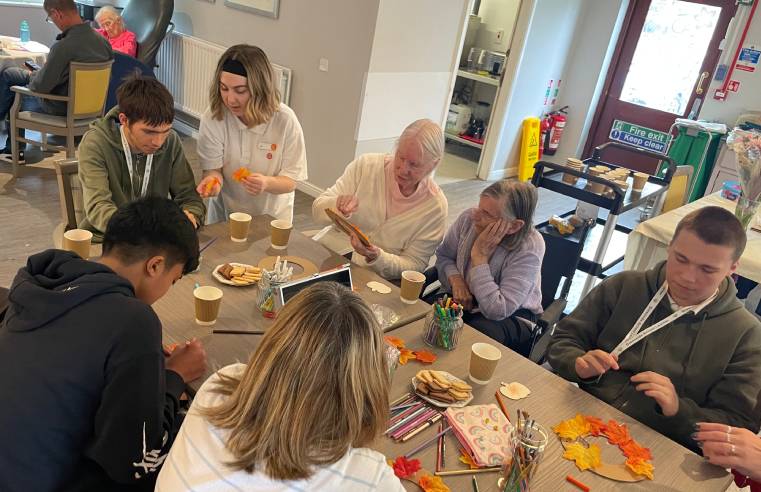You are here
- Home
- >
- Care home news
- >
- BELONG WARRINGTON MUSIC THERAPY
MUSICIAN HELPS BELONG WARRINGTON MAKE MELODIES

Published on 10/08/2022
Music therapy sessions that help people connect, communicate and engage, have hit the right note with residents at Belong Warrington, who are enjoying the benefits of creative expression as part of a flourishing relationship with music therapy charity, Nordoff Robbins.
Pam Thomson, an experienced music therapist and Goldsmiths, University of London alumna, is working with the not-for-profit dementia specialist’s customers in small groups and one-to-one to translate their personal experiences, memories and observations of the world through the power of music.
Supporting the residents as they contribute as they please using instruments including tambourines, drums and their voices, she matches their energy and tone of voice to build a connection. Pam said: “It’s very person-centred and ability doesn’t matter; it’s about going with their flow and as the narrative unfolds, the residents become more confident with their playing and singing. The result is a sense of social connection, purpose and having an identity, and this impacts positively on people’s wellbeing.”
Belong enlisted the charity as part of its ethos of promoting the wellbeing of customers through meaningful occupation in line with their interests. Both organisations share the same approach using music and the arts to unlock memories, reduce isolation and help people regain their sense of identity, no matter their stage of dementia.
Pam continued: “Making music together offers companionship without any pressure of conversation or the need to pick-up on social cues. It can help to access memories, foster feelings of connection and belonging. The experience has been very encouraging, so far, and it’s been a pleasure working with everyone. It’s especially worthwhile working with residents whose health means they are confined to their beds. It’s been rewarding to be able to take the music to people wherever they are in the village and they have responded very well.”
June Newton, experience support worker at Belong Warrington, added: “It’s wonderful having Pam with us; her presence has been well-received, particularly by our customers further along their dementia journeys who are less able to access social connection or are non-verbal and find it hard to express their feelings. We’ve seen a number of remarkable outcomes, such as a gentleman who was able to recall his previous session – for him, it's quite a special achievement.”
Related News
Categories
- CQC ratings
- Care home news
- Care jobs
- Care planning
- Care sector awards
- Care sector events
- Care sector news
- Care staff
- Charity
- Cleaning & Hygiene
- Construction
- Dementia
- Disability
- Entertainment
- Finance
- Fitness
- Food & Drink
- Fundraising
- Furniture
- Health & Safety
- Healthcare
- Hospice & Palliative Care
- Hospitals
- Industry Comment
- Interiors
- Laundry
- Legal
- Leisure
- Medication
- Mental Health
- Mobility
- New appointments
- PPE
- Products
- Property
- Recruitment
- Relationships
- Research
- Safeguarding
- Security
- Services
- Social care
- Sustainability
- Technology
- Training
- Transport
- Uniforms
- Waste
- Wearables
























